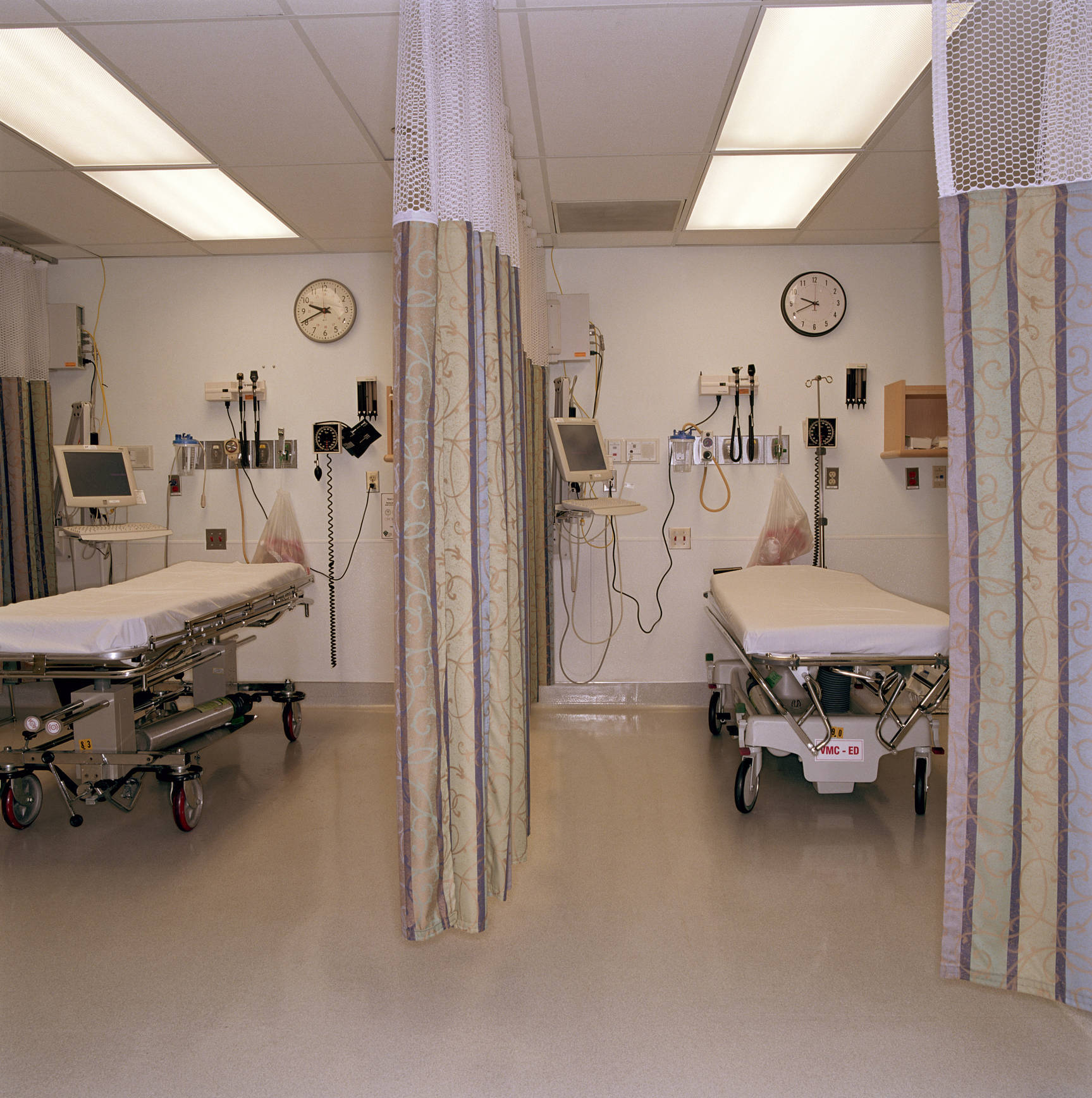Repealing the Affordable Care Act would have cost the Bartlett Regional Hospital around $4 million with cuts to Medicaid, BRH Chief Executive Officer Chuck Bill has said repeatedly over the past month. The failure of that repeal in Washington, D.C. has Bill sleeping a little easier at night.
What’s been bothering him over the past few months, however, is the negative effect that statewide politics have had on the Juneau hospital. One issue in particular has become “a scary situation,” Bill said Thursday.
Bill sees a correlation between the timing of Senate Bill 91 — a criminal justice reform bill passed into law last year, which aims to reduce recidivism and the number of people incarcerated statewide — and recent problems at the hospital. He says there’s been an influx of people with drug and alcohol issues being treated at the hospital since the law went into effect in July 2016, and a concerning rise in violence from those patients as well.
“We’re seeing a lot more visits from those people,” Bill said, “particularly with drug or alcohol problems, but also a big increase in violence, so it’s a challenge for us as an organization to make sure that our other patients are safe and that our employees are safe, and we work really hard at that.”
Bill spoke about the rise in violence and his wish to keep employees safe both to the City and Borough Finance Committee on Wednesday night and to those at the local Chamber of Commerce luncheon Thursday. After the luncheon, he mentioned an incident where one patient attempted to strangle a nurse with an IV tube, and a number of assaults on employees and other patients.
The other obvious challenge the hospital is facing from the state is the uncertainty with the state’s budget. There will be major budget cuts across many fields, Bill knows, and health care is not immune. The budget is far from set, but the medical community knows of proposed cuts of 5 percent for hospital care (both inpatient and outpatient) and a 13 percent reduction for physicians’ salaries, which Bill called “a significant challenge.”
Bartlett always keeps money set aside for emergencies or for special projects, but Bill knows how unpredictable everything is with the budget process.
“Basically, we’re fiscally sound at this point in time,” Bill said. “We have reserves that are within what the industry guidelines are, but two flips of the pen can cost us $10 million.”
How Bartlett is responding
The hospital has doubled its security force and has implemented what Bill called “panic buttons,” where an employee can press a button hanging around his or her neck and alert a centrally located security detail.
Bill said there are a number of “frequent flyers” in the emergency room who come in regularly, and is hoping that local projects can help ameliorate this situation. Chiefly among these projects is the Housing First initiative, which aims to provide 32 beds for those with drug and alcohol addictions. Bartlett has given $100,000 to Housing First, which is scheduled to open in early July.
“We’re very hopeful that the Housing First project is going to help with that,” Bill said of the influx of inebriates in the emergency room. “It’s only 32 beds, so it’s not going to accommodate the whole need by any means, but if they focus on the most frequent flyers, it will be helpful to us.”
The hospital is also hoping to make the Rainforest Recovery Center more diverse in the issues it treats. Historically, the center mainly treats those with alcohol addiction. In the past couple years, more and more of the 16 beds at Rainforest are dedicated to those suffering from opioid and other drug issues. Bill said a couple years ago, 95 percent of those treated at Rainforest were there because of alcohol use. That number has dropped to 60 percent, with other drug users becoming more frequent visitors.
The city’s sleep-off center — which the hospital runs — is also located near Rainforest and makes for a place for inebriates to stay. Unfortunately, this center only has five beds, and Bill said it’s “overflowing” in the winter.
Supplying special treatment for inebriates is a major goal for Bartlett, Bill said, both in supplying more intensive care for them and for improving the safety of hospital employees.
“That population is a population that we’re going to see over and over and over in our ER if we don’t intervene in a way,” Bill said.

